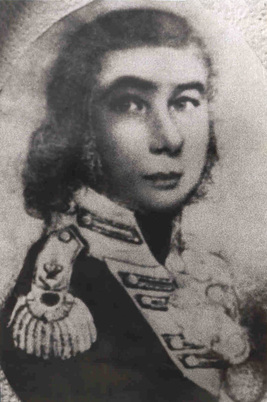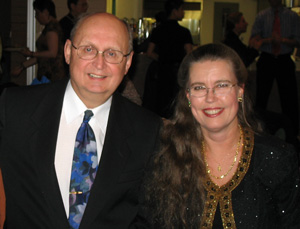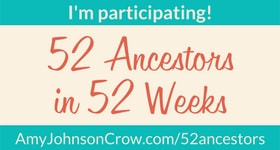 Harry Childeroy COMPTON - England & PEI, Canada
Harry Childeroy COMPTON - England & PEI, Canada I think the first ancestor I would choose to meet would be my 4 times great-grandfather Colonel Harry Childeroy Compton, who was the first in my maternal line to set foot on Canadian soil (on the shores of PEI) back in 1803. He lived in 4 different countries (England, Ireland, Canada and France) at different times in his life. I would first like to meet him as a boy growing up on his family's estate in Amport, Hampshire, England, interacting with his 11 brothers and sisters, his English father Thomas Compton (with roots in Wiltshire) and his French mother Frances Mount Childeroy (an orphan raised by his father's family). What did he know about his mother's French ancestors? Was he a good student? How was he raised? Who were his friends?
Jumping ahead to adulthood, how did he meet and court Charlotte Lisle Newman prior to marrying her on in Amport in 1779. What caused her early death when she was only in her late 20s, and after giving Harry only 3 children? How did he and his family cope? His second marriage produced only one daughter. What caused their separation before he left for Canada, and later this daughter's early death?
Harry's military experience and his involvement in the Irish Rebellion seems to be a pivotal time in his life. Some say he was granted land in PEI because of services rendered to the Crown (1794-1799) in this rebellion. However, there is also a record of him being imprisoned for a few months in 1795 in Ireland. So what really happened? Why did he leave England? We know that Harry acquired land in PEI - part of lots 17 and another lot (16 or 20?) - and he moved there about 1803. He quickly traded his share of the other lot for the rest of lot 17, so his land holdings were considerable before he sold off parts of it. What were his first impressions of this new land? Did he really bring many of the fixtures and building materials from England to build his large landmark home (named the "Pavilion") on his colonial property? How did it later burn down?
Another area of his life worth exploring would be his religious and political leanings, as he seems to have had conflicting loyalties. Soon after arriving in PEI he was involved in the colonial militia, following his serving as Captain and then as Major in the Perth Highland Regiment of Fencibles in the British Army. He was promoted to the rank of Colonel in the PEI militia in 1806. He seems to have been sympathetic to the Roman Catholic church (no doubt influenced by the beliefs of his French mother), as he provided some of his land in PEI to the Acadians to build their RC church. He also entertained RC delegates to PEI in his home. However as a landowner and aspiring politician on PEI, it was necessary for him to be prominently affiliated with the Church of England in order to properly influence the direction of local affairs. I would love to know some of the back stories to this aspect of Harry's life.
And finally, why did he leave his "colonial affairs" in the care of his son Thomas and leave Canada? What could he tell me about his third wife, and the large chateau he bought for her in Normandy where he spent his final years? And although he could not tell me this himself, I would like to know exactly where his final resting place was located on his estate in France.
Without the actions and decisions made by my ancestor Harry, my mother might not have been born Canadian, and perhaps not have ended up on beautiful Vancouver Island where I was born. His legacy to my mother's family is undeniable. Thank you Gggggrandpa Harry! It sure would be nice to talk to you.


 RSS Feed
RSS Feed
